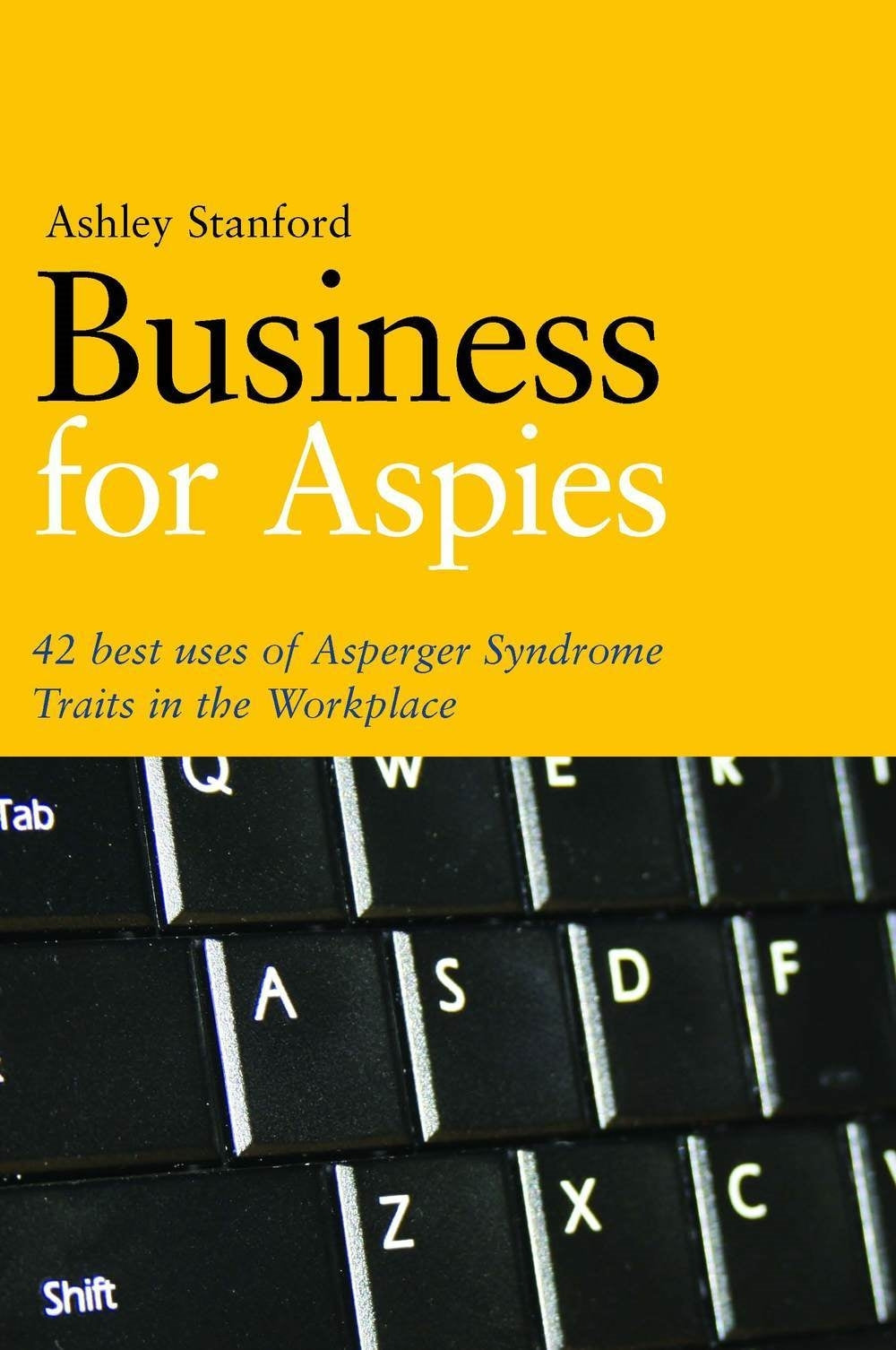
Press Reviews
The Midwest Book Reivew
Describes expectations of employers, provides tips to help AS individuals succeed at work, and provides a positive tone in discussing strategies. Business-oriented concerns from pay raises and team meetings are also surveyed in a guide that is simply packed with nuggests of financial wisdom geared to Aspie employees.
The Midwest Book Review
A powerful pick for any Asperger adult who wants details on how to handle the working world - and for employers who hire them - makes this a dual recommendation for business and health collections alike.
iautism.info
Overall, I categorize business for Aspies as a good self-help business book. It is written by a businesswomen, not a psychologist, and it's plenty of hints and common sense to help aspies to succeed at work. Indeed, I think that many of the hint she ;proposes are also applicable in other real life situations. The structure of the book, based on 42 separate best practices, and the non-technical language used, makes Business for Aspies a very readable and practical book, that can be read from beginning to end or be used as a reference book for selected topics.
Human Givens
This book explains how those with Asperger's syndrome (AS) can get their talents recognised and become successful and indispensable employees.
ASTeens
Stanford is expert at finding solutions that only someone who has intimate experience with aspergers is likely to do. She offers straightforward but not obvious advice on how to organise one's physical environment for those with executive function problems... I love this book as it is clear, constructive and realistically positive.
Newsletter of the Autism Society of Michigan
One of the most brilliant suggestions she makes it that of "Quiet Posture" - meaning a body posture that doesn't indicate any emotion at all. This can neutralize any negative feeling in the workplace and greatly reduce the chances of that person being misunderstood for being angry or sad, when he is feeling just the opposite, but indicating otherwise. She also stresses the importance of keeping hand gestures calm and "small", to reduce social difficulties in the workplace. These are thing I never thought about and I felt as though my brain was getting larger as I read this... In addition, she suggests some neat cognitive strategies, such as using "brain space", to compartmentalize one's day and one's tasks... The Best Practices are numbered, making them available to the reader for easy reference, which makes this a reverence book, also... The survival strategies that she suggests, such as getting enough sleep, creating a nest, or cosy living or work space, and being aware of food sensitivities, such as allergies to gluten, are all common sense approaches that don't cost much, if anything and can be done at anytime, to make one's life better!... This is the best book on employment for people with AS or HFA that I have seen and it should be in every library!
The International Centre for Autism Research and Education
In a positive and upbeat tone, she shows that with the right supports and strategies, it is possible to overcome the day-to-day challenges that trip up even the most savvy Aspie, including negotiating pay raises, employer/employee relationships, team meetings, career advancement, and choosing when to take vacation time. Drawing on her experience as CEO of a computer software company, she also suggests steps that employers and managers can take to improve the working environment for people with AS, and take advantage of their strengths to enable them to become outstanding employees. Business for Aspies will help people with AS take steps towards achieving happy, fulfilled and above all successful working lives. It will be of key interest to the employers, managers, partners, and families of people with AS.
Fore Word Reviews
The accessibility of Business for Aspies is a testament to Stanford's sixteen years as a technical writer. After each behaviour, she offers a series of "best practice". Ostensibly addressing the aspie employee, the practices not only manage the specific behaviour but also identify its inherent strengths to the employer.
Asperger United
this is a very useful book, even for people who have no intention of working, or for partners of people on the spectrum, as there is a wealth of details and anecdotes showing how potentially difficult situations can be dealt with, both at work and at home... I think this is a very useful book for employees, employers, colleagues and support workers. I expect everyone will find something new here.
